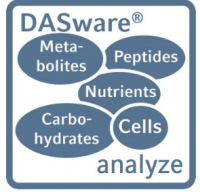Using Antibodies to Analyze Polyglutamine Stretches
互联网
392
Expansion of a homomeric stretch of glutamine residues beyond a critical threshold can produce neurodegenerative disease. This observation led to the idea that abnormal polyglutamine stretches can alter protein structure in ways that contribute to disease. Because they are prone to aggregation, proteins with abnormal polyglutamine expansions have been difficult to study with conventional biophysical approaches. Some of these proteins are also very large, complicating efforts to generate them in vitro or to purify them for biochemical studies. An alternative approach has been to use antibodies with known binding specificity as probes of protein folding and protein structure. Antibodies can often bind to specific protein epitopes in situ and are, therefore, one of the few tools that can be used to probe protein structure in a physiological context and in the presence of that protein’s normal binding partners. However, antibodies are complex reagents, and an understanding of their binding properties, methods of use, and limitations is needed to interpret results properly. We have developed monoclonal antibodies that specifically recognize expanded polyglutamine stretches in mutant huntingtin. Here, we describe several methods for using one of these antibodies to explore the structure of abnormal polyglutamine expansions and the proteins that contain them.






